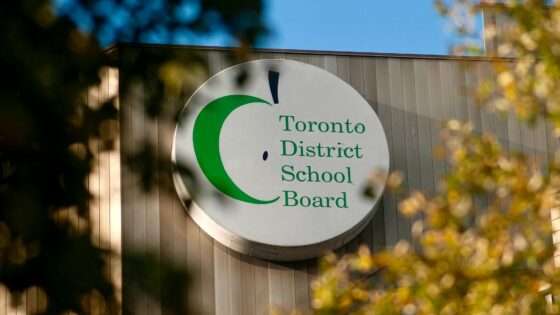on
BY PAUL JUNOR
The Canadian Union of Public Employees (CUPE), which represents 55,000 education support workers which includes: school support staff, lunchroom supervisors, office and clerical staff as well as designated early educators across the province, commenced their work-to-rule on September 30th. This job action (which involves a partial withdrawal of services extended across the province) was announced on September 19th as the members voted in favour of taking this job action. This decision was made after the failure of talks between the Council of Trustees (who represent Ontario school boards in provincial negotiations) and CUPE ended without reaching a collective agreement. This withdrawal of services marks the start of a campaign to pressure the PC government.
There were many people within the education sectors that anticipated this work-to–rule in light of the decision that the Ford government made to increase class sizes from 22 to 28 students in high school and from 23.5 to 24.5 students in Grades 4-8 over four years. It has been projected that there will be approximately 10,000 teachers who will no longer be part of the teaching profession.
Vast opposition to this action was evident in the demonstrations on April 6th, when thousands of teachers, students and unions came out to show solidarity. This has no doubt led to much uneasiness and tensions between the unions and the government who has determined to implement it’s policy.
The partial withdrawal of services, which include but are not limited to include the following:
- Not sweeping hallways, office areas and gymnasiums
- Not doing school compost or recycling programs
- Not cutting grass, shovelling or completing other ground maintenance
- Not collecting or accepting money for school related funding
This work-to-rule has clearly been felt as it impacts aspects of school internal functioning such as: school activities, permits and school operations. There are many community-based programs, religious institutions and after-school programs that had to be cancelled due to this action.
On October 2nd, CUPE made the announcement that it had given five days notice ahead of a walkout scheduled to begin on Monday, October 7th. The Minister of Education, Stephen Leece stated that there is a “credible pathway” to a making a deal, and the sides “aren’t all horribly far apart on a lot of issues.” He also claimed that the government “has demonstrated reasonability, flexibility,” in talks according to the October 6th edition of the Toronto Star. He reiterated that “there are a few issues that will be negotiated at the table over the weekend, but I do note that there is a pathway to resolve this, and it really rests with the union being unreasonable.” There has been opposition to this perspective by Laura Walton, president of CUPE who finds the use of the word ‘reasonable” interesting. According to the Toronto Star, she states “I don’t find it reasonable that we have students without educational assistants, or find it reasonable that we have full-day kindergarten classes with 30 kids in a classroom, or find it reasonable that we have cleanliness standards going down in schools.”
On Sunday, October 6th, it was announced publicly that CUPE had reached a tentative deal, which averted a possible strike. There is no doubt that many parents were happy as this ensures that they would not have to scramble to find day care spots for their children at the last minute. The gain for the union was that it was able to maintain the sick leave plan in place, which was a sore spot for the government, and to secure job security and consistent hours for workers to serve children with special needs. Many believed the desire to finalize a deal was prompted by the impending federal election on October 21st, as a strike would possibly become a federal election issue.
There are still ongoing negotiations between the Elementary Teachers Federation of Ontario (EFTO), the Ontario Secondary School Teacher Federation (OSSTF) and the government. A province wide day of action was planned for October 10th in which over 340 schools in over 44 school boards participated in a school walk-in that was organized by the Ontario Families of Public Education. There is also a Facebook group called the Ontario Education Workers United, which is involved in building a province wide cross-union movement to reverse the cuts, and build the schools our kids, and communities need to thrive. These grass root initiatives are building capacity across Ontario.
Stay in the loop with exclusive news, stories, and insights—delivered straight to your inbox. No fluff, just real content that matters. Sign up today!
With a last name that means “Faithful and loyal,” it is no wonder that Paul Junor has become a welcomed addition to the Toronto Caribbean Newspaper Team. Since 1992, Paul has dedicated his life to become what you call a great teacher. Throughout the years, he has formed strong relationships with his students and continues to show them that he cares about them as people. Paul is a warm, accessible, enthusiastic and caring individual who not only makes himself available for his students, but for his community as well.













